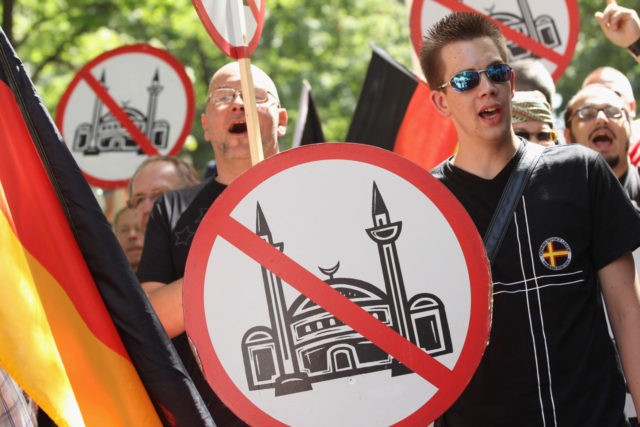Sigmar Gabriel, the leader of Germany’s Social Democratic Party (SDP) and Vice-Chancellor to Angela Merkel, has taken a hard line on Salafist Islamism in an interview with Der Spiegel.
Gabriel, speaking just a few weeks after a Tunisian migrant killed a Polish haulier and drove his lorry into a packed Christmas market in Berlin, admitted that the country was now locked in a kulturkampf, or “cultural war”.
“We must strengthen the cohesion of society,” said the Vice-Chancellor, who had previously argued that Germany could take in 500,000 migrants a year “for several years”, and “maybe more”.
“Salafist mosques must be banned, the communities dissolved and the preachers should be expelled, as soon as possible,” he has now said.
Gabriel has already begun to attempt to distance himself from Angela Merkel’s unpopular open-door policy, last August saying his senior partner had “underestimated” the challenges of integration.
In contrast, the increasingly embattled Merkel, who like Gabriel faces a strong challenge from the populist Alternative for Germany (AfD) party in this year’s elections, has insisted that Germany must continue its attempts to fight terrorism with compassion.
Salafism is a fundamentalist form of Sunni Islam which, increasingly powerful in the Arab world, which seeks to return the religion to its 7th century roots. There is a strong emphasis on emulating the first three generations of Muslim believers, known as the salaf, who rode with Mohammed and conquered Jerusalem, Persia and Spain.
The startling growth of Islamism in Germany has been blamed on Gulf states such as Saudi Arabia, where a strain of Salafi Islam known Wahhabism, said to be the “main source of global terrorism”, is the state religion.
Last month Germany’s Federal Intelligence Service (BND) and the Federal Office for the Protection of the Constitution (BfV) revealed that there are at least 10,000 Salafists in Germany, supported by Saudi-backed “missionary movements” such as the Saudi Muslim World League and the Sheikh Eid Bin Mohammad al-Thani Charitable Association.
Another Gulf-backed organisation active in Germany, the Kuwaiti Revival of Islamic Heritage Society (RIHS), has been banned in the United States and Russia for alleged links to al-Qaeda.
The oil-rich countries sponsoring extremism in Europe have come under sharp criticism for their own refusal to accept migrants. The Saudis, while offering the pay for two hundred new mosques to serve Syrians in Germany, have refused to take in refugees themselves, citing security concerns, while Kuwaiti officials have claimed Syrian migrants are “too different” to be integrated.
All of the states in the Gulf Co-operation Council – Saudi Arabia, Bahrain, Kuwait, Oman, Qatar and the United Arab Emirates – have refused to signed up to the United Nations refugee convention.

COMMENTS
Please let us know if you're having issues with commenting.